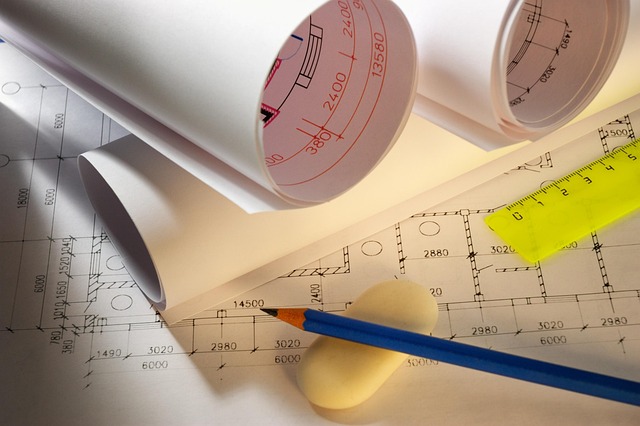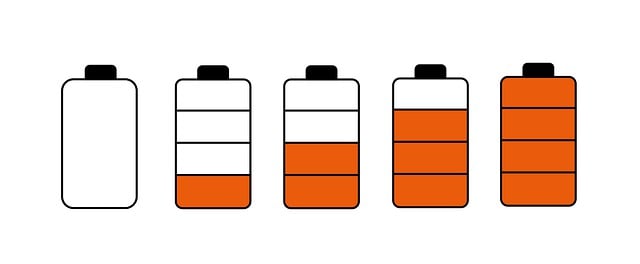In New York State and Boston, proper battery recycling is legally mandated due to strict regulations on hazardous material disposal. Battery recycling centers use advanced technologies to break down various types of batteries, extracting valuable metals while minimizing environmental impact. Dedicated programs and facilities, including startups exploring biodegradable methods, promote sustainability and a circular economy. Local collection points in NYC and NY state facilitate responsible battery disposal, with specific drop-off sites for different battery types. Understanding battery types is crucial for safe recycling; mixing or trashing batteries contaminates batches and harms the environment. Boston and New York have implemented various initiatives, including community events and strict laws, to encourage proper battery disposal and reduce toxic waste in landfills, fostering a culture of sustainability.
Discover the best ways to responsibly dispose of batteries in New York State. From understanding state-wide recycling regulations to finding local drop-off points, this guide covers all you need to know. Learn how to categorize different types of batteries and avoid common mistakes during disposal. We’ll also explore incentives for responsible recycling and the environmental impact of proper battery management. Ensure your batteries end up where they belong – in the right hands, not in landfills!
- Understanding Battery Recycling in New York State
- Local Collection Points and Drop-Off Locations
- Types of Batteries: How to Categorize for Disposal
- Common Mistakes to Avoid During Battery Disposal
- Incentives and Programs for Responsible Recycling
- The Impact of Proper Battery Disposal on the Environment
Understanding Battery Recycling in New York State

In New York State, including Boston, proper battery recycling is both a responsible and legally mandated practice. The state has stringent regulations in place to ensure that batteries, which contain various hazardous materials, are disposed of safely and responsibly. Battery recycling centers across NY, from tech stores to specialized e-waste recycling startups in the Boston area, play a crucial role in this process. These facilities employ advanced technologies to break down different types of batteries, extracting valuable metals and minimizing environmental impact.
One notable aspect of battery recycling in NY is the availability of dedicated recycling centers and programs. Residents can drop off used batteries at many local tech stores or contact boston area recycling centers for proper disposal. Furthermore, some innovative startups are focusing on biodegradable battery disposal methods, contributing to a more sustainable future. These efforts not only help reduce the environmental footprint of discarded batteries but also foster a circular economy by recovering valuable resources from old devices.
Local Collection Points and Drop-Off Locations

In New York City and across the state, there are numerous local collection points and drop-off locations designed for responsible battery disposal. These facilities play a crucial role in facilitating proper battery recycling, which is essential for protecting both the environment and public health. Many of these sites accept various types of batteries, including those from households, schools, and businesses.
Boston, NY, and its surrounding areas have embraced ma state-approved battery recycling programs that provide biodegradable battery disposal options for both rechargeable and non-rechargeable batteries. These programs are part of a broader initiative to promote sustainable practices and ensure that batteries are handled in an environmentally friendly manner. By utilizing these collection points and drop-off locations, folks can actively contribute to how to dispose of batteries responsibly, thereby reducing the potential harm caused by improper battery disposal.
Types of Batteries: How to Categorize for Disposal

In terms of battery disposal, understanding the types of batteries you have is crucial. Batteries can generally be categorized into several groups based on their composition and potential environmental impact. Alkaline batteries, commonly found in everyday items like remote controls and flashlights, are non-hazardous and can often be disposed of with regular household trash after checking local guidelines. Lithium-ion batteries, popular in electronics like laptops and smartphones, require special handling due to their potential fire risk during improper disposal. These should be taken to designated drop-off points or events for safe recycling in Boston or NYC.
Additionally, there are other types such as lead-acid batteries used in cars, which contain heavy metals necessitating specialized non-hazardous battery disposal NY facilities. While many pharmacies across MA offer battery recycling programs, especially for lithium-ion and alkaline batteries, it’s essential to confirm their acceptance policies. Boston College student life also promotes sustainable practices by providing resources for proper battery recycling, ensuring these valuable materials are not relegated to landfill sites.
Common Mistakes to Avoid During Battery Disposal

When disposing of batteries in New York, it’s important to be aware of common mistakes that can hinder effective recycling. One of the biggest blunders is mixing different types of batteries—rechargeables with disposables, for instance—in one collection bin. This confusion often arises due to a lack of understanding about local guidelines. In New York City (NYC), battery recycling initiatives have specific requirements, and blending these can contaminate entire batches, rendering them unusable.
Another error is simply tossing old batteries in the trash. Many people might consider this a quick fix, but it’s detrimental to both the environment and public health. Moreover, some postal offices in NY offer battery collection points, while eco-friendly battery recycling centers like those found in Massachusetts are readily available. These options ensure that your used batteries are processed responsibly. Remember, proper disposal through designated channels is crucial for a greener, more sustainable future.
Incentives and Programs for Responsible Recycling

Incentives and Programs for Responsible Recycling in Boston and New York bring a breath of fresh air to the eco-friendly battery disposal landscape. Many cities, including Boston and New York, have recognized the environmental impact of batteries and implemented programs to encourage proper recycling. For instance, some locations offer drop-off points for used batteries, making it convenient for residents to dispose of their old devices responsibly. These initiatives often come with incentives like discounts or rewards for participants, fostering a culture of sustainability within communities.
Startup e-waste recycling businesses in Boston have played a significant role in promoting battery recycling. They collaborate with local authorities and environmental groups to organize events where residents can bring their used batteries and other electronic waste. Moreover, the state of Massachusetts has established strict battery recycling laws, ensuring that both consumers and businesses play their part in managing this growing waste stream. These efforts contribute to a more sustainable future by reducing the amount of toxic materials ending up in landfills and encouraging a circular economy for batteries.
The Impact of Proper Battery Disposal on the Environment

Proper battery disposal is an essential practice that significantly reduces environmental impact. Batteries contain toxic chemicals and heavy metals that can contaminate soil and water sources if not handled correctly. By recycling or disposing of batteries responsibly, we can prevent these harmful substances from leaching into our ecosystems. This act of responsible disposal plays a crucial role in protecting local waterways and wildlife habitat, ensuring the health and safety of both urban and rural communities across New York state.
In Boston, for instance, neighborhood battery drop boxes have been implemented as part of an ongoing effort to promote sustainable practices. These drop boxes provide easy access points for residents to recycle dead batteries, contributing to the larger goal of reducing electronic waste. Similarly, schools in Massachusetts can play a vital role by educating students on proper battery recycling methods, fostering a culture of environmental stewardship from a young age. Encouraging how to recycle dead batteries in Boston and throughout MA is a collective responsibility that offers long-lasting benefits for both communities and the environment.
In New York State, responsible battery disposal through established recycling programs is the best way to minimize environmental impact. By understanding local collection points, categorizing batteries correctly, and avoiding common mistakes, residents can ensure proper disposition of these hazardous materials. Battery recycling in NY not only reduces toxic waste but also fosters a sustainable future for our environment. Remember that every small action counts, so take advantage of available incentives and programs to contribute to the cause.














